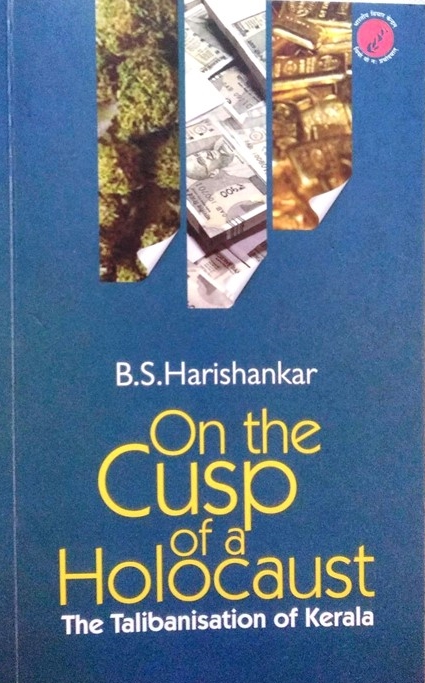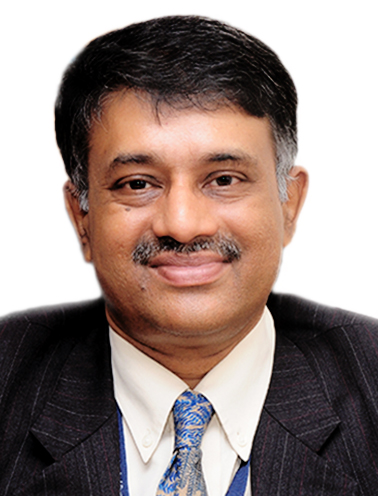
Book Review – ‘On the Cusp of a Holocaust : The Talibanization of Kerala’

Dr B S Harishankar, author, historian, archaeologist and member of the academic council of the Indian Institute of Advanced Studies, Shimla, has written a brief monograph that makes for compelling reading. The book, published by the Bharatiya Vichara Kendram, Trivandrum, is startling, because it reveals things about Kerala that are generally unknown.
The author must be congratulated on a well-researched and heavily footnoted volume, with direct and copious quotes from original sources. As he has written in English, rather than Malayalam, these facts are more easily available to people other than those in Kerala.
The book provides a clear warning that there are inimical forces in Kerala. As we have just gone through the traumatic revelations in ‘The Kashmir Files’, it would be wise for the public and the authorities to pay attention to the information presented. Especially in the wake of professional killings of political opponents, the latest in Palakkad.
The book provides a picture of the facts on the ground; it is up to society and government to come up with solutions to the problems presented.
Simply put, there appears to be an Islamist assault on Kerala. Why? Who benefits? Is it a foreign affairs issue, a “war by other means”?. So, who might be behind it?
The obvious first suspect is Pakistan with its spy agency, ISI. Now that the Americans have been ejected from Afghanistan, and their proxy the Taliban rule there, Pakistan/ISI will turn its attention to India. It is instructive that the assaults on Jammu & Kashmir coincided with times when the Taliban ruled Afghanistan. Worryingly, the Americans left behind enormous amounts of arms and ammunition when they fled, and surely some of this will show up in Kerala.
There is also theoretical support for Pakistani actions: on the one hand, there is apparently something in their scriptures that suggest a final victory over India. On the other hand, their national hero Jinnah wanted not just partition, but the total balkanization of India.
The Americans are another prime suspect. That their spy agency, the CIA has friends in Kerala was demonstrated as far back as the 1959 agitation, that toppled the Communist government of EMS Namboodiripad. Later, the Maldivian spy case that badly delayed ISRO’s cryogenic rocket efforts very likely had their fingerprints all over it, as part of commercial espionage.
The US has an ambivalent role. They do not want Islamist fundamentalism to reach their shores, despite their Iraq, Libya, Syria, Palestine etc adventures, so they re-direct the anger against others, especially India. Besides, the US wants client states, not partners, or, worse, competitors. They realize that allowing China to grow was a mistake, and they want India to remain underdeveloped and beset by internal problems rather than become a challenger.
China uses Islamist fundamentalism as a force multiplier to keep India down, while at the same time allying with forces in the Muslim world to smother criticism of their Uighur policy. At the moment, this hypocrisy suits Pakistan and its friends such as Turkey and Malaysia.
In the Muslim world, Saudi Arabia was the initial radicalizer: as a religious duty, they ploughed a significant portion of their OPEC earnings into creating Wahabi/Salafist mosques in India and elsewhere, but now they are rethinking, because it is a danger to their ruling families as well. Gas-rich Qatar has now taken on the mantle of radicalization.
Iran, because of Sunni-Shia schisms, is probably not involved. But transnational groups such as Al Qaeda, Taliban and ISIS view India as a soft target and also a natural conquest for them, based on earlier successful attacks by Islamist forces.
The means have changed, but the objectives remain the same: conquest of territory, historical, civilizational and cultural eradication, triumphalism. Today all this is hastened by modern technology such as Telegram, Hoop, Rocket, etc. which make it easier for encrypted communications, mobilization, recruitment, conversion, and radicalization.
The book addresses these issues in eight brief chapters, which consider the Afghan connection, the drug-money nexus, the role of migrant workers, and the institutions that have been hijacked. It ends on a grim note: “holocaust ahead”.
It is intriguing that hundreds of well-educated youths, including doctors, engineers, and their families have moved to Afghanistan and other countries for ISIS purposes. Fathima (formerly Nimisha) from Trivandrum, a dental student, is an example. They are not products of poverty.
There is, according to official statistics (likely an undercount) a total of 648 missing persons with 297 women in 2011-17 from Kerala. The numbers are high from Kasargod, Kozhikode and Malappuram. A number of them have been confirmed killed in suicide bombings, US aerial attacks, etc. There is a worldwide phenomenon of Muslim youth being far more radical than their parents; this repeats in Kerala too.
There is also a nexus of drugs and money: with 20 lakh users and annual value of 1,44,000 crore. A boat was captured by the Indian Coast Guard in the Arabian sea, with 3,000 crores (300 kg of heroin) drugs, from Sri Lanka, and five AK 47 rifles, ammunition. There was a second similar haul.
A nexus between drugs and the gold-smuggling is likely. Couriers moving drugs abroad come back with gold, fake currency, as well as hawala, worth 10,000 crores according to Jacob Punnoose, a former Director General of Police in Kerala.
Counterfeit currency is also a problem. A container load of fake notes from Pakistan via Dubai was intercepted in Cochin port, which probably means that many other containers got through. Demonetization hit this business hard, but the perpetrators are resilient.
Another issue is the large numbers of migrant laborers: many are in fact Bangladeshis. A senior police official estimated there were 35 lakhs of them in Kerala in 2020. They are illegal aliens, with no right to live in India, and should be caught and expelled, but they settle down, and are provided papers by friendly politicians, or they can procure them cheaply.
Finally, there appears to be an unholy alliance between the Left and Islamists. Bernard Henri-Levy, well known in French circles, is quoted here as saying that this is an alliance intended to bring down Western civilization. India, unfortunately appears to be the dress rehearsal. In the end, it boils down to yet another imperialism, competing with the West and China, and sometimes cooperating with them.
Overall, this is a deeply disturbing book. India cannot afford to ignore for long that there is a sophisticated foe with clarity of purpose. Europe has already become Eurabia to an extent (see Easter riots in Sweden and Spain); but they will resist through harsh violence, as the Russians did in Chechnya. India will not; and tries to hide behind the fig-leaf of ‘secularism’.
There are pitifully few attempts to highlight the assault on India. The recent agitations over the halal economy and the hijab, as well as the stone-pelting on Hindu processions during Ram Navami and Hanuman Jayanti show Islamist street power, and the powerlessness of others including governments. This book helps us understand where Kerala fits into this picture.
***************
Disclaimer
The opinions expressed in this article are the author’s own and do not reflect the views of Chanakya Forum. All information provided in this article including timeliness, completeness, accuracy, suitability or validity of information referenced therein, is the sole responsibility of the author. www.chanakyaforum.com does not assume any responsibility for the same.
Chanakya Forum is now on . Click here to join our channel (@ChanakyaForum) and stay updated with the latest headlines and articles.
Important
We work round the clock to bring you the finest articles and updates from around the world. There is a team that works tirelessly to ensure that you have a seamless reading experience. But all this costs money. Please support us so that we keep doing what we do best. Happy Reading
Support Us





















POST COMMENTS (1)
Kalidan Singh